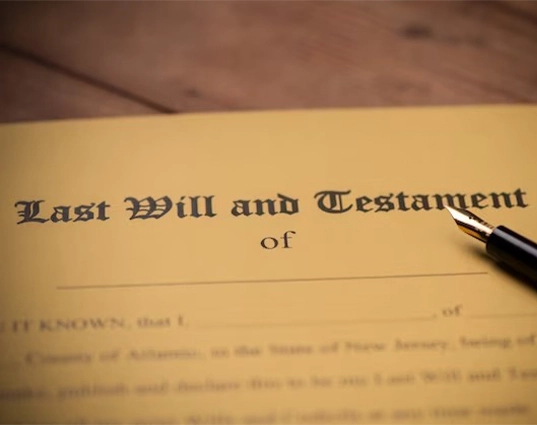At Estofa Law, we feel delighted to be the top pick for Wills And Estates Lawyer Haldimand County. We provide unparalleled knowledge and attentive assistance with all your estate planning requirements. Our Wills and Estate Lawyers ensure that every detail of your estate is carefully managed, from creating thorough wills to establishing challenging probate and legal procedures.We provide an abundance of understanding and expertise. Although handling wills and estates may be both emotionally taxing and legally complex, we offer personalized, customized solutions that aim to protect the assets you have and respect your wishes. Our committed team of Real Estate Lawyer Haldimand County is dedicated to supporting you whether your goal is to form trusts, settle disputes, or draft an accurate and legally sound will. At Estofa Law, we take pride in creating enduring bonds with our clients and providing them peace of mind via excellent legal assistance and representation. Make sure about your plans for your future with our help by getting in contact with Estofa Law Wills And Estates Lawyer Hamilton right away to see the impact of our experience.
A person’s wishes concerning managing and division of their assets and affairs upon death are outlined in a Wills And Estates Lawyer Haldimand County, which is a legal document. It serves as a precise and legal declaration of your intentions for the distribution of your assets, the rearing of the dependents, and the choosing of an executor who will handle the estate’s governance. A will assures that the affairs of your estate are managed according to your wishes, as opposed to being governed by default state regulations, by stating how you’d like your property, finances, and additional assets to be distributed. It can also make the legal process easier for those closest to you, avoiding disagreements and ensuring that your goals are carried out properly. Essentially, a will gives an official, legally binding framework for handling your affairs and a legacy.

The will is a legally binding agreement that specifies the distribution of a person’s property and final wishes. The following are the standard contents of a will:
The will takes effect on the death of the testator, the one who made it. Until then, the testator, if they are currently of sound mind, can alter or revoke the will; it has no legal force. A will has to go through a legal procedure known as probate when the person who wrote it passes away, through which the court will confirm the validity of the will. The executor appointed in the will has the authority to manage the estate according to the testator’s wishes during the probate process. To make sure that the testator’s intentions regarding the division of their wealth and other items will be carried out as intended, the will does not become operational until the verification process is finished.
Wills have restrictions although they are crucial in deciding how a person’s wealth is distributed. The handling of assets that transfer outside of the court process, such retirement accounts along with life insurance policies, that usually have named beneficiaries, aren’t covered by wills. Further, if a person becomes inadequate, issues related to financial management and medical decisions aren’t addressed by a will; instead, they have to be handled by separate legal papers like a living testament or power of attorney. Furthermore, since they are subjected to various legal rules, assets owned jointly or in trust, as an illustration, cannot be managed through a will. It’s also crucial to keep in mind that a will cannot protect an estate from debt or estate taxes; these must be handled independently throughout the probate process.
A will must comply with a variety of legal circumstances, which differ according to the nation’s laws, to be deemed valid. The testator typically needs to be of mature age and mentally healthy, indicating that they understand the full consequences of their choices. Verbal wills are rarely accepted; the will must be in written form, either handwritten or typewritten, depending on the rules of the region. It must be signed by the testator, and most jurisdictions require that at least two people witness the making of the will—who are not required to be the beneficiaries,sign the paper themselves. The witnesses must also be able to verify that the testator seemed to be in a healthy mind and not under the influence of drugs or alcohol, as well as being legally qualified to do so.
Our Wills And Estates Lawyer Toronto have experience in dealing with all types of estate planning. We provide competent advice and tailored solutions that make certain your estate gets handled exactly as you want it. You can count on us to provide you with comprehensive, compassionate legal representation that is customized to your circumstances.
Estofa Law is a real estate law firm dedicated to serving clients in Burlington, Oakville, Milton, Hamilton, and Toronto.
The material found on our website is intended purely for informational purposes. It is not to be considered as legal advice or a replacement for seeking guidance from a qualified professional. A solicitor-client relationship is not established until formal retention.
Copyright © 2025 | Estofa Law Professional Corporation | All Rights Reserved